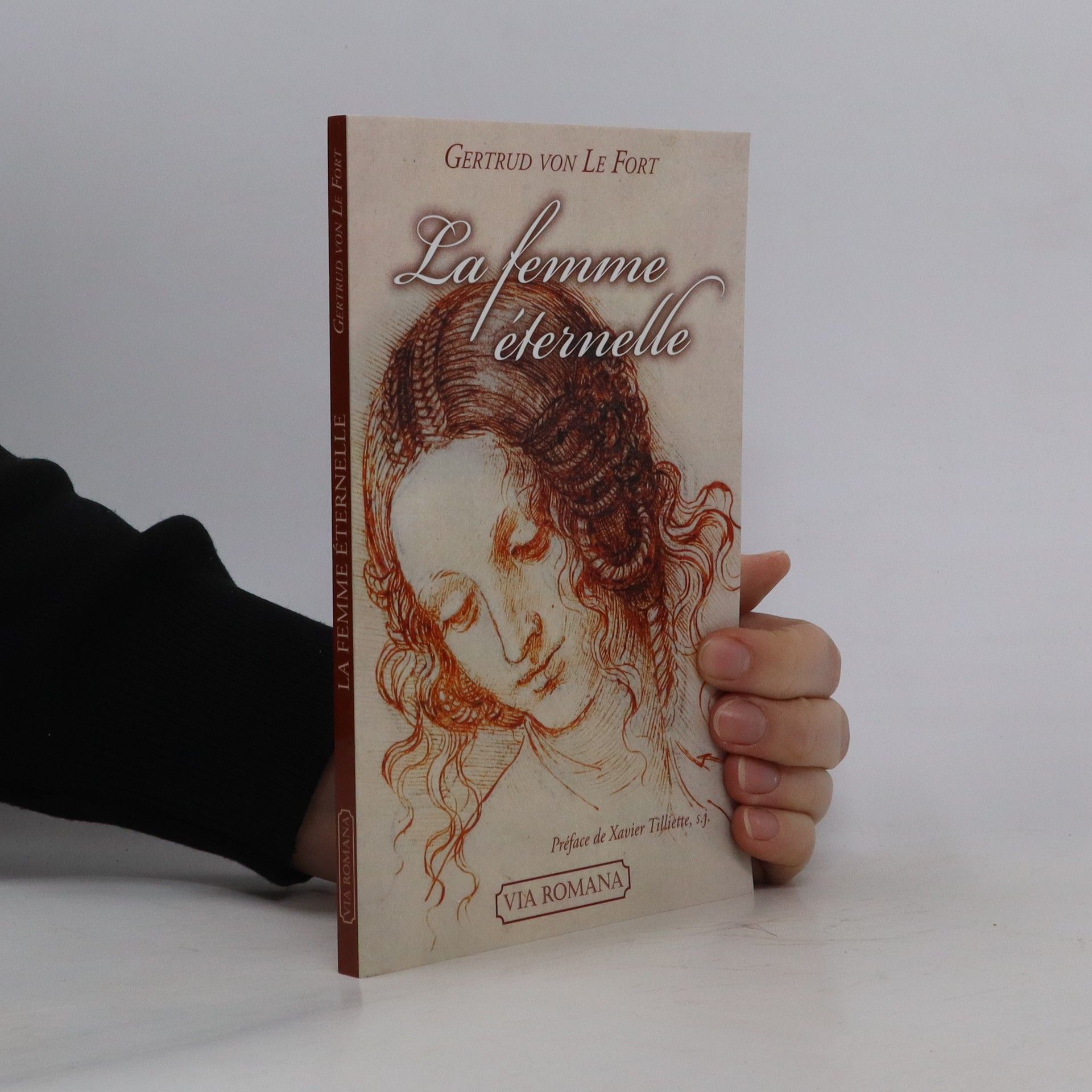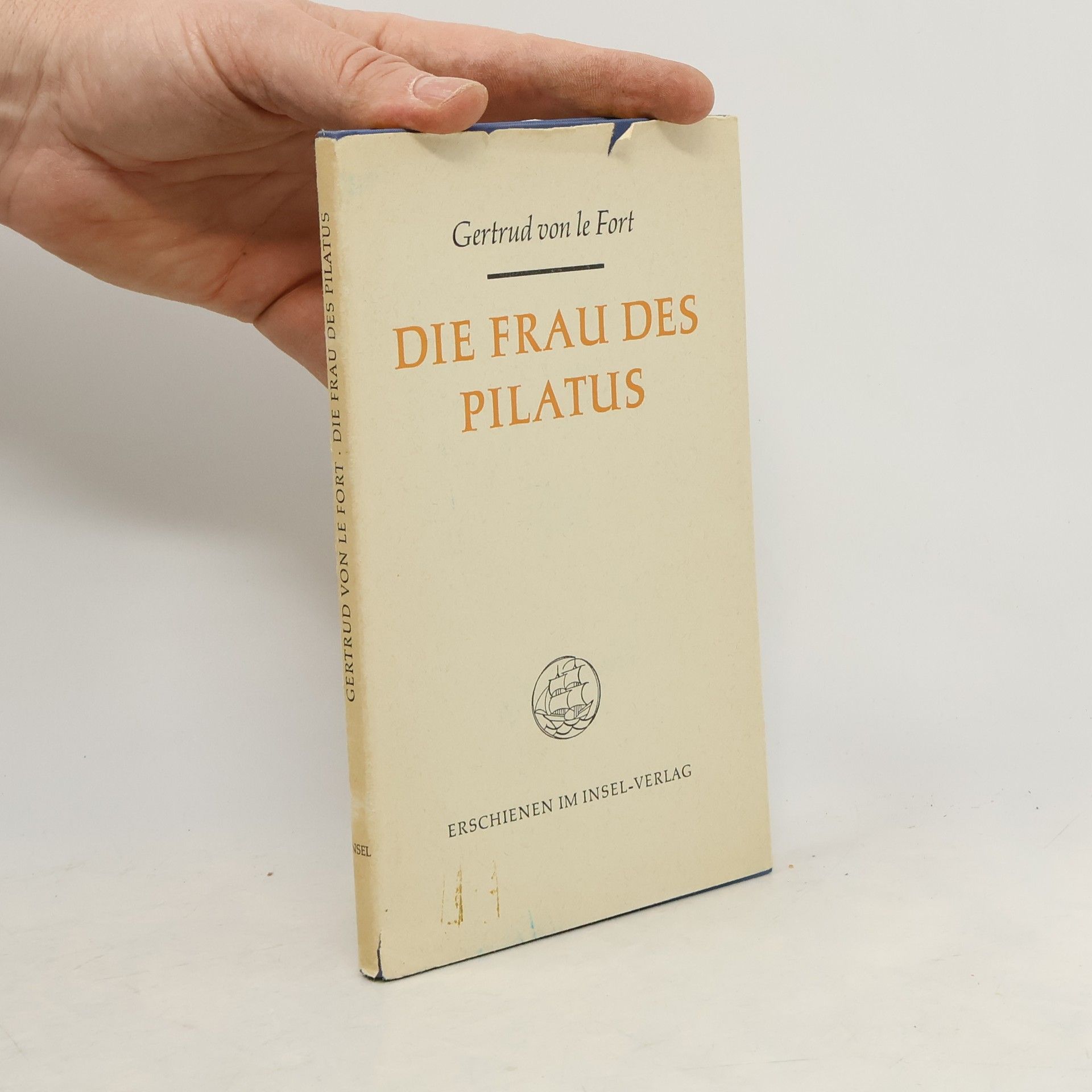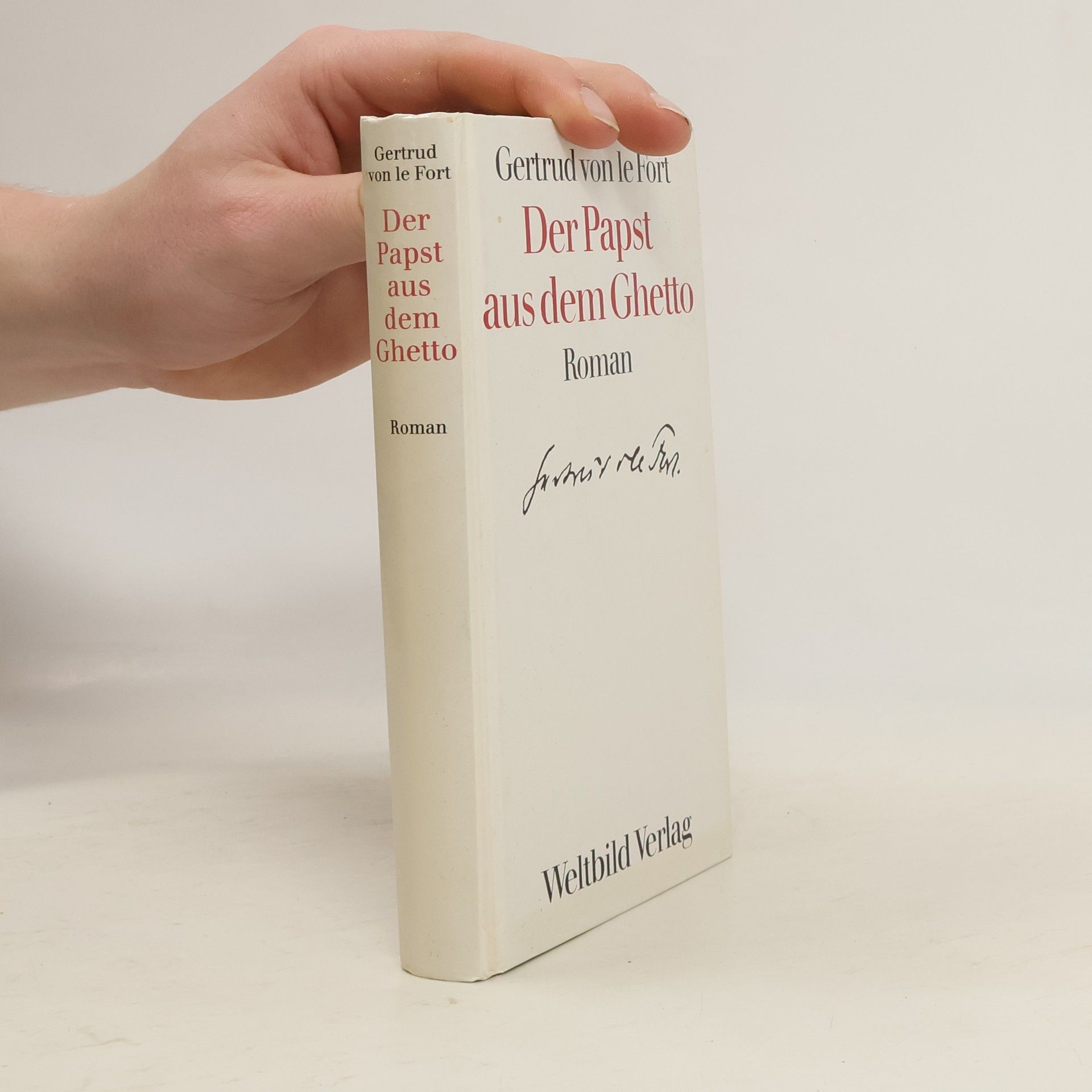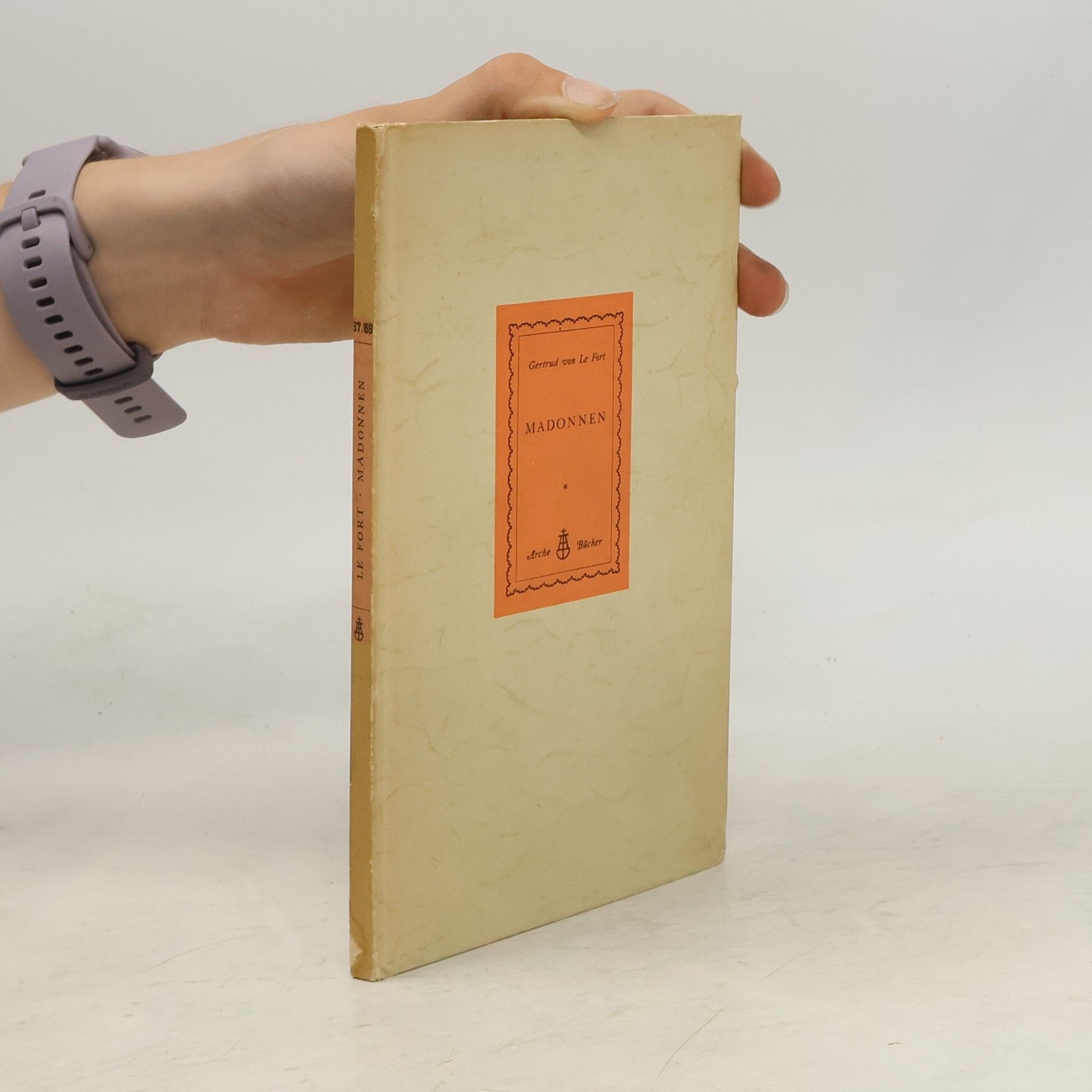In großen Bildern schildert Gertrud von le Fort die tragische Lage der Stadt Magdeburg im Dreißigjährigen Krieg.
Gertrud von le Fort Books
Gertrud von Le Fort was a German writer whose works, deeply shaped by her conversion to Catholicism, explore profound spiritual and existential themes. Her literary output, encompassing novels, poems, and essays, often draws upon historical and religious narratives, demonstrating a unique capacity for psychological insight. She excels at portraying characters' inner struggles and their quest for meaning, offering readers a thought-provoking and enriching experience. One of her novellas served as the foundation for a notable opera, underscoring her significant impact on the arts.







Wir standen dicht vor dem Eingang eines gotischen Tores, es war verschlossen; aber über ihm, dort wo die beiden Linien seines spitzen Bogens sich berührten, schwebte unter einer offenen Efeuwolke das Urbild jenes lieblichen Symbols der beiden Engel, die mir in meiner ersten Heidelberger Nacht als Enzios und mein Schutzengelpaar erschienen waren: Ein und denselben Kranz haltend, eng aneinandergeschmiegt, wie es die himmlische Ordnung bestimmt hatte, schienen sie mich hier erwartet zu haben, um mir wieder, wie in jener Nacht, zuzurufen: „Alles, was dein eigen ist, es ist vor Gott bereits sein!“
Gertrud von le Fort erzählt die Geschichte der Claudia Procula, der Ehefrau des Pontius Pilatus ab dem Augenblick der Verurteilung Jesu Christi. In einem Wachtraum hört Claudia betende Menschen die Worte "Gelitten unter Pontius Pilatus, gekreuzigt, gestorben und begraben." sprechen. Erfolglos versucht sie ihren Mann von der Verurteilung Christi abzuhalten und leidet für den Rest ihres Lebens an diesem Fehlschlag.
L'éternel féminin fascine autant les hommes que les femmes. Les poètes le chantent, les philosophes le scrutent, les théologiens l'exaltent. Ce chef d'œuvre de l'écrivain allemande Gertrud von Le Fort en témoigne, hymne intemporel inspiré par le regard d'Edith Stein, son amie déportée, moniale et fille de sainte Thérèse. Dans une prose déliée et mue par l'Amour, voici l'antidote à la guerre des sexes de Simone de Beauvoir, célébration dans le temps, hors du temps, au-delà du temps d'une féminité transfigurée par la grâce de Dieu.
Das Schweißtuch der Veronika. Der römische Brunnen. Roman
- 300 pages
- 11 hours of reading
Die berühmte Novelle von 1931 spielt in der Zeit der Französischen Revolution. Geschildert werden das Schicksal der Karmeliterinnen Blanche de La Force und Marie de L'Incarnation sowie die Hinrichtung von 16 Glaubensschwestern im Juli 1794. Die 1926 zum katholischen Glauben konvertierte le Fort schildert reale Zeitgeschichte als Heilsgeschichte und rückt ihre Novelle damit in die Nähe zur Heiligenlegende.



